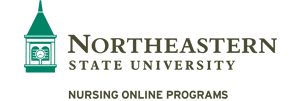Earning an online Registered Nurse to Bachelor of Science in Nursing (RN to BSN) degree can help you become more qualified for advancement in the nursing profession, and it shows your commitment to nursing. Most important, it helps you provide better care to your patients. Many employers are hiring more BSN graduates because research shows improved patient outcomes when BSN-prepared nurses are responsible for patient care.
Further, demographic shifts in the U.S. population continue to increase the number of patients needing complex care, in turn increasing demand for well-educated nurses. Getting your BSN can help you become more competitive in the job market, allowing you to qualify for a higher salary or advance into a better job.
There is an ongoing push by healthcare institutions, organizations and legislative bodies supporting the drive for more BSN nurses. Mounting evidence of better care outcomes, increased demand on the healthcare system and an aging U.S. population all contribute to an increased need for nurses with strong educational backgrounds. A BSN degree is a well-regarded credential and a significant achievement for the nurse who earns it. With a bachelor’s degree, you can set yourself apart as a nurse who is committed to the advancement of healthcare and the nursing profession.
The Case for More BSN Graduates
Research supports the need for more BSN-prepared nurses. Additional nursing education is associated with reduced patient mortality rates, shorter lengths of stay and lower rates of readmission. Having additional education and training allows nurses to learn more about nursing best practices and spend more time with experienced mentors and instructors.
For instance, a 2022 study published in Nursing Outlook showed a significant correlation between nursing education levels and mortality rates. According to the study’s findings, “Higher hospital proportions of BSN nurses, regardless of educational pathway, are associated with lower odds of 30-day inpatient surgical mortality.”
Plus, an aging U.S. patient population is resulting in additional demand for highly educated nurses. The number of U.S. residents over the age of 65 is increasing rapidly, now accounting for one in six people in the country, according to the U.S. Census Bureau. That segment of the population needs more healthcare services. This trend is straining an already overextended healthcare system with a persistent shortage of nurses and physicians.
Moreover, the COVID-19 pandemic exacerbated the nursing shortage, increasing levels of burnout and hastening nurse retirement and other forms of nurse attrition. These factors impact access to healthcare and the quality of care people receive in unquestionably negative ways. At the same time, the nursing shortage and increased need for qualified practitioners create opportunities for highly educated nurses and other healthcare professionals.
BSN Benefits for Nurses
Nurses who want to advance in their careers, become healthcare industry leaders or mentor other nurses can benefit from a BSN. According to the American Association of Colleges of Nursing (AACN), 93% of new BSN graduates have job offers four to six months after graduating. Many hospitals, clinics and nursing facilities are seeking BSN nurses. In fact, AACN reports that approximately 71.7% of hospitals and other healthcare settings “are expressing a strong preference for BSN program graduates.” As of 2022, 27.7% of healthcare employers require that new-hire nurses have a BSN.
These preferences or requirements are even more ubiquitous in high-level healthcare institutions and nursing leadership roles. For instance, to be eligible for Magnet designation, a hospital’s nurse leaders and nurse managers must all have a bachelor’s or higher-level degree in nursing. According to the National Nursing Workforce Survey, the percentage of U.S. nurses with a BSN or higher degree topped 70% for the first time in 2022. Earning a BSN degree is now a virtual necessity for RNs who want to remain competitive in the increasingly educated job market.
In general, baccalaureate-prepared RNs earn higher pay and better positions than nurses with less education. If you plan to become a nurse educator or serve in a leadership role, obtaining your BSN can help you reach your goals. BSN programs prepare students with the practical and theoretical knowledge they will need in the workforce and in their communities.
Additionally, a BSN degree is a prerequisite for graduate education in nursing. You can improve your research, study and patient care skills while earning your BSN. By acquiring more education, you can better serve your community and patients. You will learn practical skills from instructors and mentors that you can apply to complex cases and other challenges you will face.
The Online RN to BSN Option
Northeastern State University offers an ACEN-accredited online RN to BSN program that can help nurses obtain additional education while continuing to work full time. If you can continue working and making your salary while you earn a BSN degree, you can graduate without the heavy cost burden of nurses who must give up work hours to attend campus-based programs. Many employers even offer educational assistance like tuition reimbursement or loan repayment for nurses who continue working while they advance their education.
As a BSN graduate, you can make a significant difference in your community and your career by helping to improve patient care. More employers now either require or prefer to hire BSN graduates. A national nursing shortage is creating strong career and advancement opportunities for nurses with additional education. By earning a BSN, you can help yourself while helping your patients.
Learn more about Northeastern State University’s online RN to BSN program.


